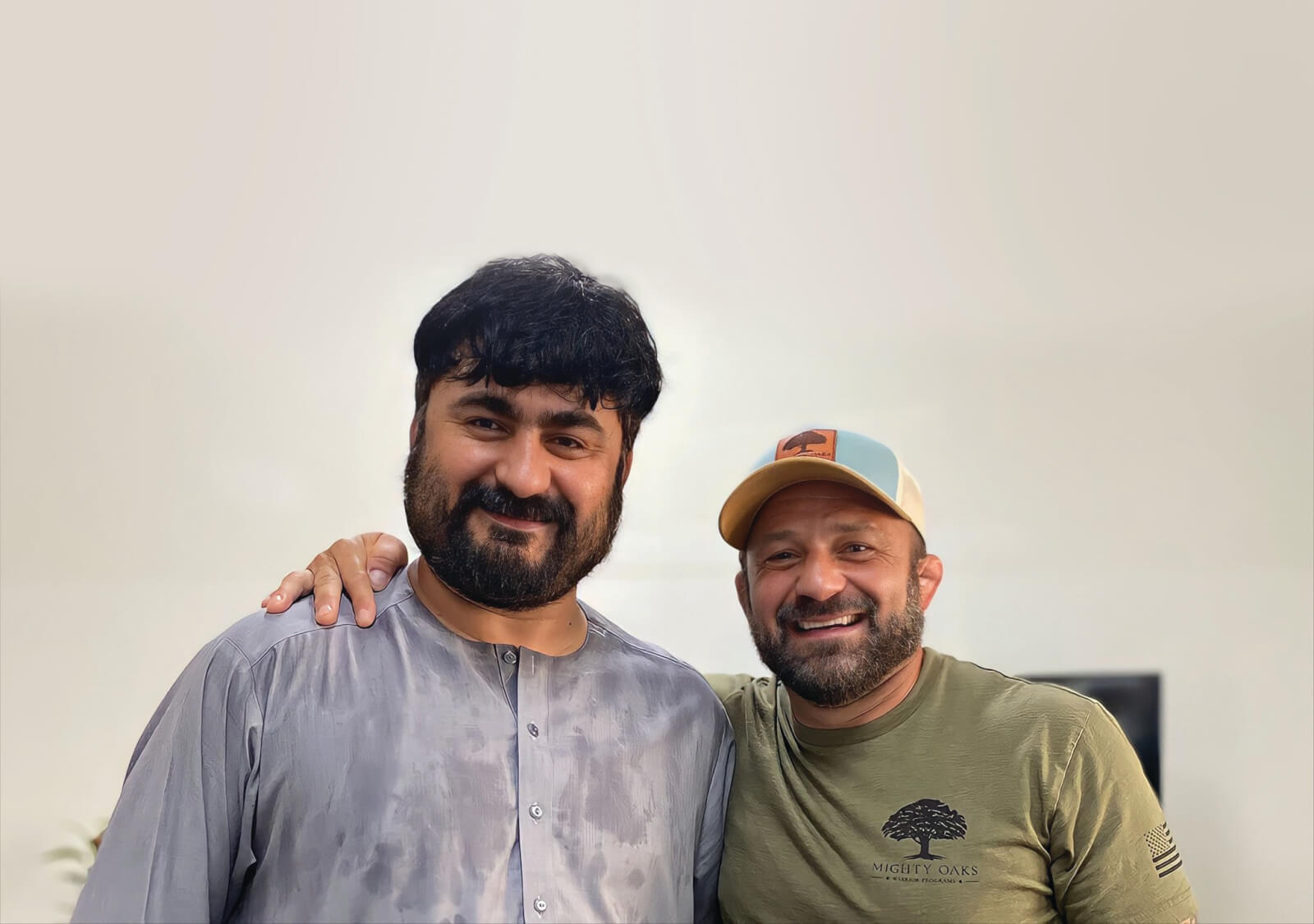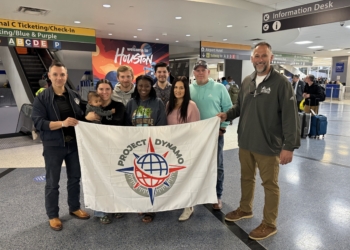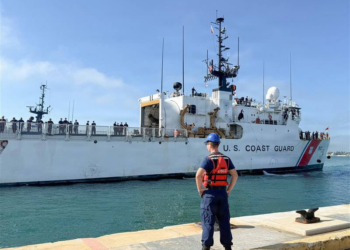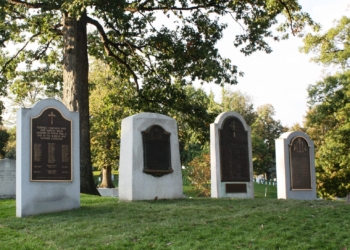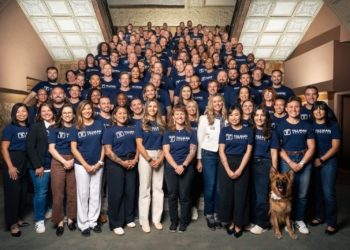When Chad Robichaux learned the U.S. military would be pulling out of Afghanistan, a single thought pressed to the front of his mind: “I have to go get my friend.”
A former Force Recon Marine with several Afghanistan deployments under his belt, Robichaux had grown inextricably close with Aziz, the Afghan translator assigned to him during each of his eight tours. Buried deep in Afghan communities, they drank tea with locals, collected intel on Taliban targets and cheated death on the regular.
“When we were not operating, I didn’t go back to base. I typically stayed at his home,” Robichaux said during a recent interview with Military Families Magazine. “The first warm meal I got coming out of the mountains was made by his wife. I was there when his oldest son was born, when his daughter was born, I held them as babies. He became family to me.”
So, when news broke in April 2021 that the last of the U.S. forces would withdraw from Afghanistan, the safety of Aziz and his family consumed Robichaux. What he didn’t anticipate was how his effort to save his friend would escalate into arguably the greatest rescue mission in the wars against terrorism.
Robichaux captures that story in “Saving Aziz: How the Mission to Help One Became a Calling to Rescue Thousands from the Taliban,” recently released by Thomas Nelson Publishers.
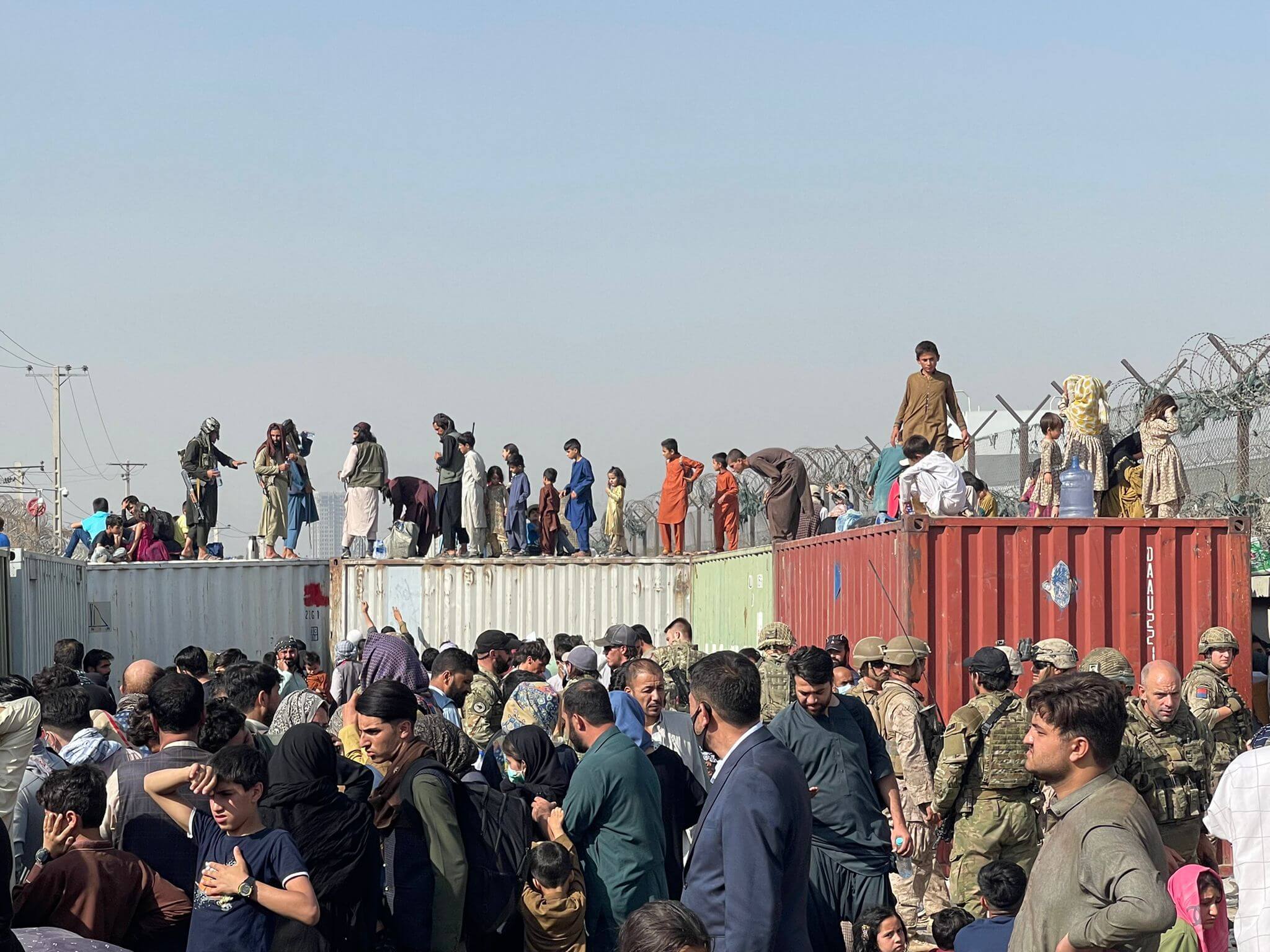
Knowing that active-duty service members would be prohibited from operating on Afghan soil after the retrograde, Robichaux turned to former Green Berets, Force Recon Marines, Navy SEALs — the usual suspects for an off-the-books mission like this. But one of the vets raised a question to which none of the others had a good answer: “Why are we going to get just one family?”
RELATED: Afghanistan evacuation: Nonprofit aims to revamp special-immigrant visa processes
“That led to, ‘We have this incredible talent, we have a willingness to go, we are all people of faith. Let’s help as many Americans, and interpreters and their families, and women and children (as possible),’” said Robichaux.
Robichaux and his band of highly skilled veterans, operating as an NGO, pressed on with little rest for weeks, rescuing about 17,000 people.
“(The U.S. military) allowed us as an NGO to go onto the airport, land aircraft, go outside the wire … even the military wasn’t allowing the military to do that,” said Robichaux. “I believe God orchestrated that.”
Robichaux and his team exhausted every available option in bringing thousands to safety, including calling in high-end favors from political commentator Glenn Beck and the royal family of the United Arab Emirates. Ultimately, Robichaux said, “the flights dried up” and the “State Department pretty much shut us down.”
 The book is an extension of Robichaux’s heart for the Afghan people — and a testament to the humanity of the veterans involved. Its rich descriptions of Afghan culture read as heartfelt admiration, even love. It speaks to the transformative power a deployment can have on those in uniform.
The book is an extension of Robichaux’s heart for the Afghan people — and a testament to the humanity of the veterans involved. Its rich descriptions of Afghan culture read as heartfelt admiration, even love. It speaks to the transformative power a deployment can have on those in uniform.
“Like most Americans, I used to think, ‘We’re going there because of 9/11. We’re going to crush these people. How dare they?’” Robichaux said. “But you get over there and you realize, we’re not at war with Afghanistan. Yes, we went there to rid the world of terrorism and the Taliban, but it’s about helping the Afghan people. … They didn’t desire to live this way. They actually desired freedom, and they were willing to fight and die for it.”
Today, Robichaux has turned to his work through The Mighty Oaks Foundation, which offers faith-based, peer-to-peer resiliency training to veterans, first responders and their families. But the Afghan people remain heavy on his heart. He hopes the book can compel readers to advocacy on their behalf.
“The reason this happened (was) everyday people said our government wasn’t doing the right thing (and) stood up and did the right thing,” Robichaux said. “(But) people can only help if they’re educated. … People shoot 10-15 emails a day; drop one to their congressional rep and say, ‘I’m not OK with this.”


